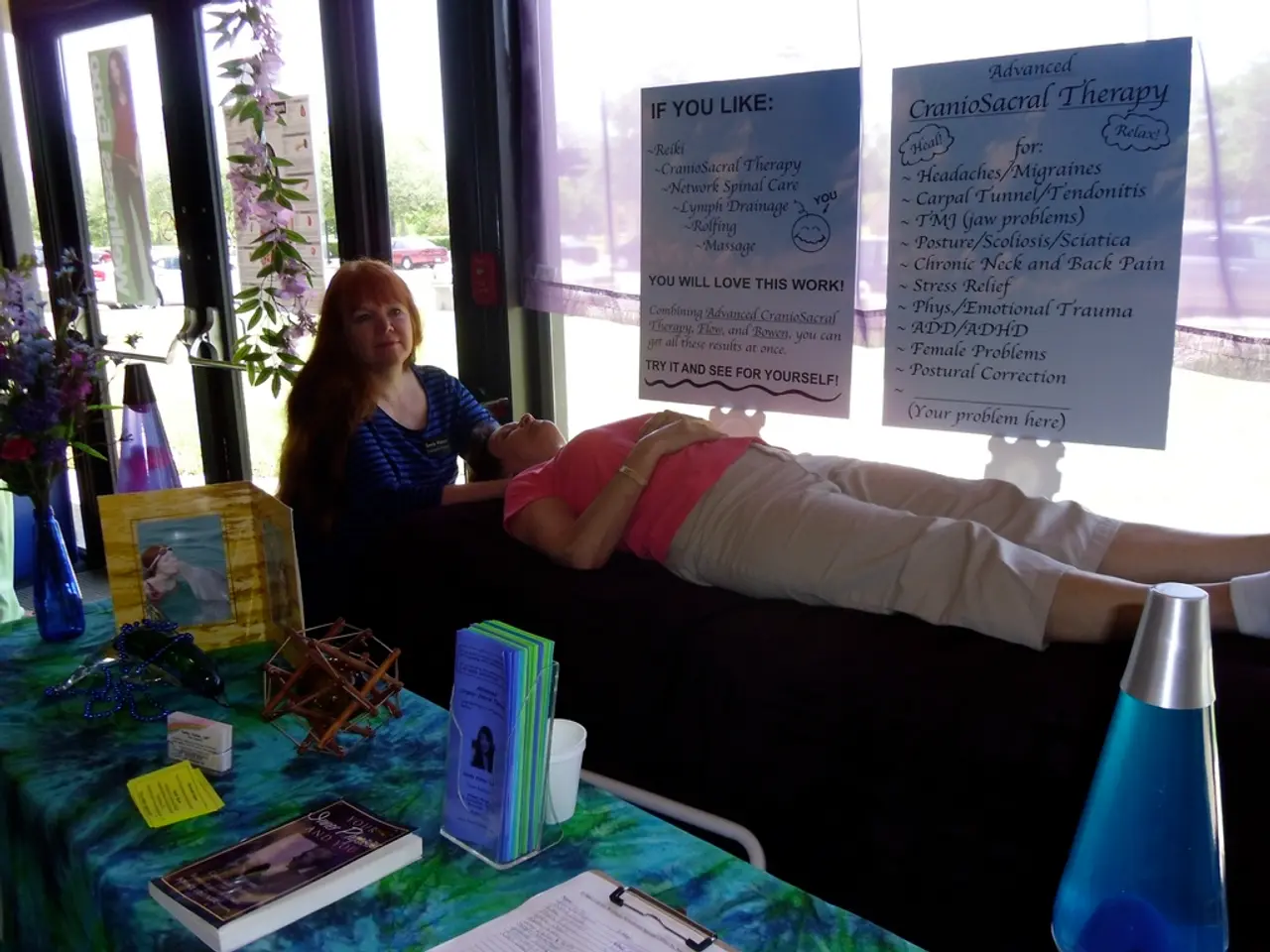"Explanation of pressure points alleviating constipation"
In the quest for effective treatments for constipation, pressure point-based therapies such as acupressure and acupuncture have gained attention. However, more research is necessary to fully understand their effects on constipation, particularly in children and general adult populations.
Traditional Chinese medicine believes that triggering certain pressure points around the body offers health benefits. While high-quality, large-scale research supporting the effectiveness of these therapies for treating constipation in both children and adults remains limited and somewhat condition-specific, recent findings suggest promising results.
For instance, a randomized controlled trial published in 2025 showed that home-based acupressure can effectively relieve constipation and improve psychological well-being and quality of life specifically in spinal cord injury (SCI) survivors. Another study found that auricular acupressure combined with virtual reality technology reduced preoperative constipation severity in adult patients with Stanford type B aortic dissection. Additionally, a systematic review and network meta-analysis found promising efficacy in lung cancer patients experiencing constipation.
However, these findings are primarily for specific clinical groups rather than the general pediatric or adult populations. Large-scale pediatric studies are notably few, and no clear consensus has emerged from current gastroenterology and clinical guidelines that firmly establish acupressure or acupuncture as standard effective treatments in these groups.
For adults with specific underlying conditions such as SCI, TBAD, or lung cancer, emerging high-quality trials support the benefits of acupressure or acupuncture for constipation. For the general adult and pediatric populations, however, high-quality, large-scale research is lacking, and evidence is insufficient to support routine use.
It's important to note that lifestyle changes and over-the-counter (OTC) laxatives can help with constipation, but the research supporting pressure point-based therapies for constipation is limited. Other methods for relieving constipation include increasing dietary fiber, drinking more water, eating more wheat bran, oats, or linseed, not waiting to pass stool, passing stool at regular times, increasing physical activity, and using both OTC and prescription laxatives.
Acupressure involves the use of fingers to stimulate pressure points, and while it's not known to cause adverse effects, acupuncture therapy (which involves needles) can have side effects such as infection, bleeding, and nerve damage.
If you're experiencing chronic constipation or constipation that does not improve with OTC laxative use, it's crucial to consult a healthcare professional. Constipation may have a serious underlying cause, such as a bowel obstruction.
In conclusion, while emerging research suggests potential benefits of acupressure and acupuncture for constipation in specific populations, further large-scale randomized controlled trials are needed across diverse populations, especially children, to establish definitive effectiveness.
- Acupuncture, a therapy that involves needles, may offer potential benefits for constipation in specific clinical groups, such as spinal cord injury survivors, lung cancer patients, and those with TBAD.
- Nutrition plays a significant role in bowel health, and increasing dietary fiber, drinking water, and consuming foods like wheat bran, oats, and linseed can help relieve constipation.
3.While acupressure, which stimulates pressure points using fingers, is not known to cause adverse effects, acupuncture therapy can have side effects including infection, bleeding, and nerve damage.
- For the general pediatric and adult populations, the research supporting the use of pressure point-based therapies like acupressure and acupuncture for constipation is limited, and a healthcare professional should be consulted for chronic or persistent constipation.




